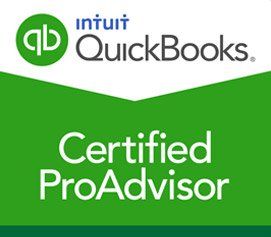Tax Basis 101 Guide
Tax basis is a concept that most people have to deal with at some point. Unfortunately, very few people know exactly what a tax basis is, or how it applies to their situation. In this article, we will be breaking down the concept of tax basis and how it can be used to your benefit.
Let's get started.

What is Tax Basis?
The tax basis of property is the amount you paid for it. This includes any interest you paid on money borrowed to buy the property and the cost of any improvements made to the property.
It is important to know your tax basis when you're selling a home or other real estate, because it can impact how much money you get from the sale. The difference will be subject to sales taxes if your tax basis is less than what you sell for.
A tax basis is a way to determine the amount of your tax liability and is calculated by applying a percentage to the
fair market value (FMV) of an asset.
The tax basis of an asset is determined by multiplying its fair market value by the percentage that reflects its taxable value to you. For example, if your property has an FMV of $100,000 and you are required to pay taxes on $80,000 of that property, then you would have a tax basis of 80%.
Cost Basis
Cost basis is the amount of your investment you can claim as a tax deduction.
The cost basis of an investment is the original price you paid for it, not including any cash that has been added to it since then. If you bought stock in Google for $500 per share and sold it at $1,000 per share two years later, your cost basis would be $500. However, if your broker gives you a loan to buy a stock at $1,000 per share, your cost basis will be reduced by the amount of money borrowed from your broker, $500, to calculate how much of your gains are taxable.
Cost Basis Example
Cost basis is the amount of money you have invested in a particular asset or investment. For example, if you buy stock for $100 which goes up in value to be worth $150, your cost basis is your initial investment- the $100.
If you sell that same stock for $100 per share and then reinvest the profits, your cost basis will be adjusted; accordingly, it's like closing out an old account.
Similarly, if you buy a stock at a price of $100 and then sell it after some time for $120, then your cost basis for the investment would be $100, and you will be paying taxes on the income or profit of $20.
To better understand the concept of tax basis, you need to consult a tax professional. Set up a
free one hour meeting today.
Gift Tax Basis
A gift tax basis is the amount of money you can include in your taxable income when you receive a gift. A gift is an item you give someone else or a set of items that have been given to you by the same person.
If you're a sole proprietor, there's no gift tax basis. If your business has a partner, however, you should add up what your gifts are worth and calculate your gift tax basis using the percentage of ownership interest in the partnership.
When you give someone a gift, it's considered taxable income at the time of the gift. This means that you have to pay taxes on the money that was given to them and on any appreciation in value over time.
Gift Basis Example
The gift basis of property is the amount you can deduct from the cost of the property you gave or received.
Whether or not you have given something depends on what the property was worth at the time of your giving it and how long ago it was given. If you give someone $10 worth of merchandise, that's a gift. If you give them $200 worth of merchandise, that's a gift.
The amount of your deduction for a gift depends on its fair market value at the time you gave it, plus any improvements made to it since then. If a person gives an item to another person but does not disclose its fair market value, this item will be considered "imputed." The amount of imputed value is added to the basis of the item for tax purposes.
Inherited Basis
The inherited basis is the value a parent company transfers to its subsidiary when it acquires a business. It is also known as the "split-up" value.
When a parent company acquires a subsidiary, the acquired subsidiary's assets and
liabilities are added to the parent company's books and records. The resulting increase in both equity and debt of the parent over what was originally recorded reflects the acquisition price paid for the subsidiary.
It's important to know how much of an asset you were given when it was passed on to you because this determines how much of that asset is subject to capital gains taxes. If you were given a large amount of property, you might save money on taxes by selling some of it and keeping the rest.
Inherited Basis Example
The inherited basis is the amount of a property's value attributed to the individual owners rather than being shared equally among all of them.
For example, if two people own $100 worth of property and contribute $50 each, their combined interest in the property would be $150. If one person died and left his share to his child, the child would own half of the original property. And the worth of that half would be the child's inherited basis.
Conclusion
Now you should understand the concept of tax basis and everything related to it. Contact a professional tax advisor if you are wondering what the tax, gift, or inheritance basis of your property is.



